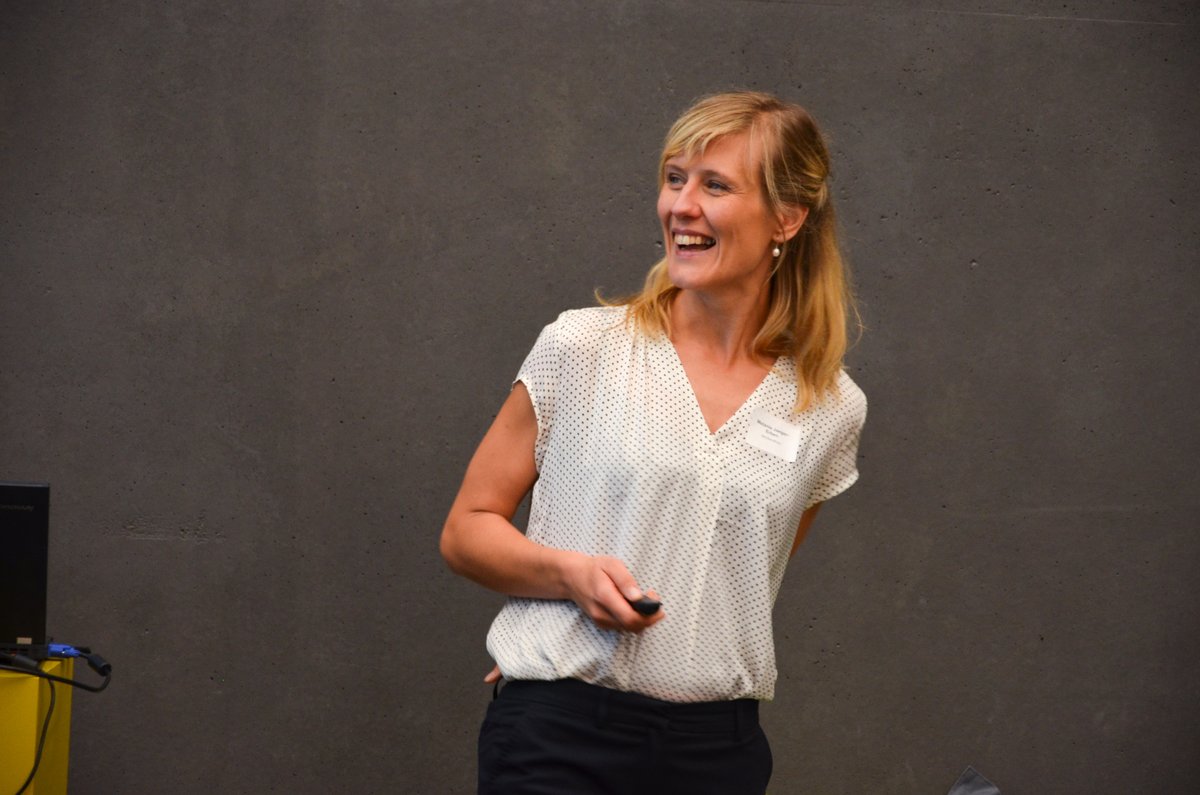A researcher at the interface between society, technology and the environment
The pulse quickens, the wind passes by the ears, the legs pedal powerfully - the way from the station to work is sporty. The bicycle chain cracks and rattles as it rattles over the sprockets, ensuring that muscle power is converted into energy. Once at the university, breathing calms down again, but the mind keeps working. Similar to this means of locomotion, the gears mesh in her everyday professional life - she investigates the interplay between technology and the environment in the context of social change and researches, for example, how society can act more sustainably and conserve resources in everyday life. Since 2021, Prof. Dr. Melanie Jaeger-Erben has been working in the Department of Sociology of Technology and the Environment "at the interface between society, technology and the environment, where - most likely - the future will be decided: Will we manage to solve the almost overwhelmingly large climate and environmental problems in the long term and preserve the basis of life for present and future generations?" the sociologist wonders, hoping to contribute to answering the question with her research and teaching.
In her field, Prof. Dr. Melanie Jaeger-Erben researches and teaches the diverse interactions of technological and social development and their effects on the environment, as well as the influence of a changing environment on society. For example, in her work on upcycling and on the life cycles of electronic products, she looks at repairing or repurposing as an alternative to throwing away and buying new products.
And although science - like cycling - is not a gender issue, the researcher describes the ratio of men to women in the social sciences as still not representative of the population. "While the gender distribution is better than in other disciplines," Jaeger-Erben says, adding, "nevertheless, the proportion of women in the higher positions is unworthy of improvement. In other gender identities, equality is still in its infancy."
For this reason, among others, the United Nations decided at its General Assembly in December 2015 to create the "International Day of Women and Girls in Science" and to celebrate it annually on February 11. The goal of this day is to promote full and equal access for women and girls to participate in science. The importance of such measures is shown by UNESCO's 2019 figures, according to which only just under 30 percent of researchers worldwide were female.
Professor Jaeger-Erben puts additional pedal to the metal, adding, "It's not just about targeting girls and women, but other potentially marginalized groups." Gender is not the decisive factor in their research questions - what is more relevant is the inter- and transdisciplinary orientation of the projects. The research assistants around Jaeger-Erben integrate the research results from different disciplines as well as the experiential knowledge from the life worlds and practical fields of various social actors.
In addition to supervising various research projects, preparing various teaching modules, supporting the learning and qualification processes of her students, doctoral and post-doctoral researchers, and various meetings and administrative activities, Melanie Jaeger-Erben is also involved in the EUNICE Alliance.
EUNICE (European UNIversity for Customised Education) is made up of ten universities from ten different European countries that create tailor-made courses for their students in order to prepare them in the best possible way for the European job market. The European partner universities, which include the BTU, have jointly prepared a MOOC, a Massive Open Online Course. Starting at the end of February, anyone interested can participate via the EUNICE website and access the content online until the end of May. Thematically, the format revolves around "global studies" and moves in the context of global economy, global health and global civil society. Jaeger-Erben will present her field of study, "Global Health and Environmental Sustainability," with a subtopic on "Environmental Sustainability."
Students will have access to video materials, written course content, additional reading materials, and an automated online assessment through the BTU's e-learning platform (Moodle) to familiarize themselves with the course content and test their acquired knowledge. They can work through the materials and take the exams at their own pace during the course. While "a MOOC cannot replace an analog event with group work and interactions, it is an exciting complementary format that provides high accessibility to education [for anyone and everyone]" is how Jaeger-Erben evaluates the online seminar.
But as with the bike ride, the course offering is just one component that meshes with other links in the chain at the intersection of society, technology and the environment. Jaeger-Erben continues to ride toward her goal of "advancing education and research for sustainable development at BTU and providing research support for structural change in the region."
If you would like to learn more about Prof. Dr. Jaeger-Erben's field of expertise:
https: //www.b-tu.de/fg-technik-umwelt-soziologie
Those who would like to participate in the MOOC will find access between the end of February and the end of May on the EUNICE website:
https://eunice-university.eu/
About EUNICE:
EUNICE, the European University for Tailored Education, born out of the European Universities Initiative and funded by the European Commission, is building a solid network of interactions between educational institutions and other actors to work on social and economic challenges. The Alliance is supported by ten universities: Poznań University of Technology (Poland), Brandenburg University of Technology Cottbus-Senftenberg (Germany), University of Cantabria (Spain), University of Mons (Belgium), University of Catania (Italy), Université Polytechnique Hauts-de-France (France), University of Vaasa (Finland), Polytechnic Institute Viseu (Portugal), University of Peloponnese (Greece) and University of Karlstad (Sweden).

